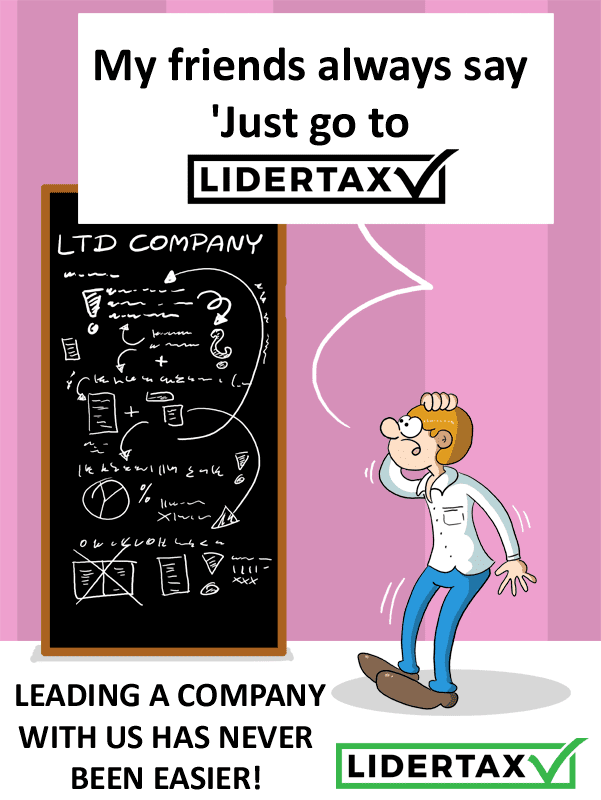
Have you ever wondered about the different requirements surrounding dividend tax in 2023/24 for an LTD company? In many cases, it can seem a little tricky to know where to begin for limited company management. But luckily, we’ve outlined some of the key things you need to know about dividends and dividend tax as follows. Hopefully, this will help streamline your decision overall.
What is a Dividend in an LTD Company?
Before we look any further, it’s important that we define what a dividend actually is anyway. A dividend is a payment made based on the distribution of profits from the company’s trading year. In other words, when a company performs well, dividend payments are made as a share of the profit income. They’re most often available to the owners or investors of the company, with the payment usually being made based on the total stake in the firm.
Despite being effectively a bonus on top of the person’s regular income, it’s worth noting that dividends are still subject to numerous legal requirements and restrictions. As such, staying aware of these is vital to keep your business in line with requirements.
Who Can Receive a Dividend Payment From an LTD Company?
Most often, a dividend payment will be made to the shareholders and owners of a company. The recipient of the dividend payment will naturally need to meet several different criteria to be eligible for the payment. This will depend on the requirements of the business.
How Much Tax Will I Pay on My Dividends?
The amount of tax that you will pay on your dividend payment is not a flat rate; instead, it’s calculated based on how much you earn as a percentage. This is very similar to how regular taxes are paid, which is highly important to keep in mind.
Of course, it’s also worth stressing here that dividend taxes are often much more cost-effective than regular pay. Thus, if you’ve been concerned about the amount of taxes you’ll need to pay, taking dividends could be more efficient.
What is the Dividend Tax Rate in 2023/24 for LTD Company Shareholders?
For 2023 and 2024, the current dividend tax rate varies between 0% and 39.35%. This is significantly lower than for regular salaried payments. As such, it’s generally easy to see why many directors choose a dividend payment approach.
Before paying any taxes on your dividends, you’ll first have a personal allowance of up to £12,570. If you earn within this bracket, you won’t have to worry about paying taxes. However, above this figure, you’ll begin having to pay tax on dividends based on the amount you earn.
From £12,571 to £50,270, you’ll have to pay a basic rate of 8.75%. Thereafter, this jumps to 33.75% until £125,140, and finally, above this figure, the tax rate climbs to 39.35%. These figures are roughly similar to the previous year (2022 to 2023), although the tax thresholds have become slightly stricter for this year for additional rate taxpayers.
What Tax-Free Allowances Can I Use Against Dividends?
If you have been concerned about paying too much tax due to taking out high-value dividends, there’s some good news. There are actually several tax-free allowances that can help keep your dividend payments more affordable.
The 2023/2024 tax-free allowance is available for the first £12,570 in earnings. This is charged at a tax rate of 0%. You can then also use a tax-free dividend allowance of £1000 potentially. Make sure to discuss with a highly-rated local “accountant near me”. Your local team should be able to ensure you’ve chosen the most efficient tax strategy.
When and How Do I Pay Myself Dividends Through An LTD Company?
At this point, you may be wondering: when (and how) do you pay your dividends? It’s not necessarily a straightforward question to answer since there are several factors at work here. However, it’s worth remembering the following points to help inform your decision.
First, it’s important to recognize here that dividends can be paid as often as needed. As such, while many people will pay dividends as a lump sum, this may not always be the case. As such, if you would prefer to split your dividends into smaller sums, that is also possible.
However, there’s one limiting factor here: you’ll need to conduct a director’s meeting to declare the dividend payments. As part of this, you’ll need to create a dividend voucher with the company name, date, shareholder names, and values. Keeping this in mind can help make it a little easier to great your own dividend payments.
How and When Do I Pay Dividend Tax From an LTD Company?
When an LTD company pays its shareholders dividends, the recipient pays taxes on these separately. You can pay taxes on dividends as part of a self-assessment tax payment.
As such, if you’ve been planning to take out dividends, it’s worth considering if you’ll need to submit additional tax forms. Luckily, this isn’t a major challenge; if you’re normally paid a salary from the LTD company, you may need to submit tax forms just for this.
Am I Best Taking a Salary or Paying Myself in Dividends?
Whether you choose to take a salary or pay through dividends is entirely your choice. In short, there’s no simple way to say which is right for your needs. However, you should recognize here that paying in dividends can give numerous tax benefits.
As a result, many people prefer to take a small salary and top up their income through dividend payments. The dividend payment may vary from year to year, though. Thus, this approach may give less earning stability for the shareholder.
Final Thoughts
Don’t delay if you’ve been running an LTD company and need further support regarding dividends, don’t delay. As the local expert “accountant near me” for businesses in and around London, our teams can help. After all, dividend payments can be a little complex. Still, we’re here to help take the pressure off for you and your business.




